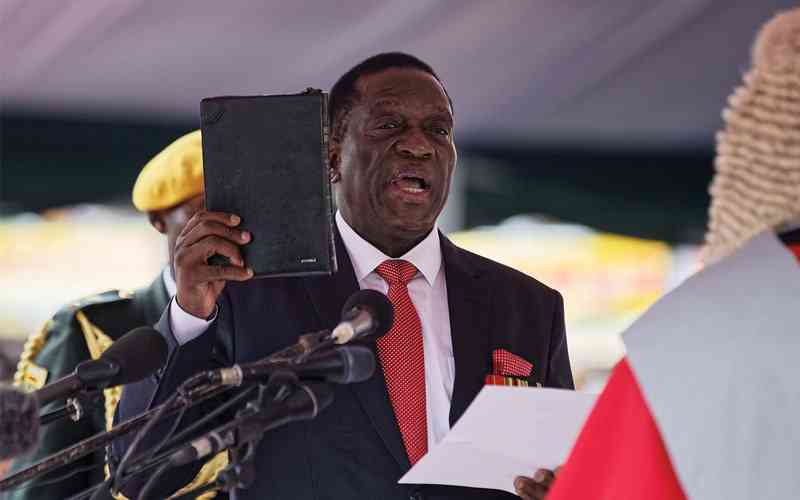
IT is puzzling that President Emmerson Mnangagwa recently offered judges and the secretariat in the judicial sector US$400 000 each while the rest of the civil servants are languishing in poverty.
The news has raised many eyebrows. If he can afford such huge amounts, why can’t Mnangagwa pay the civil servants reasonable salaries?
The continued negotiations are not yielding fruitful results. Why can’t he treat them better? The Judiciary didn’t negotiate for the loans? Why can’t he do the same for the rest of the civil service?
This issue has traumatised and occupied the minds of the civil servants since the bombshell was dropped.
Mnangagwa and Finance Mthuli Ncube are hiding behind the finger saying the coffers are empty when asked to increase the civil servants’ salaries. - MDJ
Heroism is earned, not conferred
ZANU PF is not qualified to make or unmake veteran nationalist Ndabaningi Sithole’s national hero status.
More specifically, President Emmerson Mnangagwa (given his limited, frivolous and undecorated involvement in the liberation struggle) is not qualified to speak on Sithole’s heroic contributions to the liberation of Zimbabwe.
- Mr President, you missed the opportunity to be the veritable voice of conscience
- ED to commission new-look border post
- Zanu PF ready for congress
- EU slams Zim over delayed reforms
Keep Reading
He is unworthy to untie Ndabaningi’s shoes.
Throughout his life in independent Zimbabwe, Sithole suffered persecution and harassment at the hands of Zanu PF and its government.
His key tormentors were the late former President Robert Mugabe and Mnangagwa.
Sithole died while going through a treason trial.
Hence the fraudulent charade and vote-buying gimmick at Freedom Farm today must be condemned with the contempt that they deserve.
Sithole is a national hero with or without Zanu PF endorsement. - Arthur Mutambara
Zim history needs truth, justice and reconciliation
ZIMBABWE’S history is replete with human rights violations dating as far back as the colonial period. Sadly, such violations have continued even after the country gained independence in 1980. It is, therefore, impossible to speak about the history of our country and not mention episodes of violence such as Gukurahundi, Operation Murambatsvina, 2008 election violence, the 2018 post-election shootings and the January 2019 fuel protests, among others.
However, despite this sad past, we also have much to appreciate regarding our human rights journey as a country. This includes the inclusion of a progressive Bill of Rights in the Constitution and the operationalisation of Chapter 12 Commissions with a mandate to ensure human rights protection in the country.
Given the background of human rights abuses, it is no surprise that there has been an unceasing disruption of Zimbabwe’s historical narrative to cover up for citizens’ deaths and life-changing injuries. In practice, the right to truth in Zimbabwe has continuously been weaponised to sow divisions within societies and promote intolerance.
This has been achieved through peddling false historical narratives and censoring printed and digital literature.
Given the importance of truth-telling and truth-seeking initiatives to the success of Zimbabwe’s peace and reconciliation efforts, there is a need for an important conversation on citizens playing a more active role in filling this vacant space. Such an approach will ensure that citizens continue to shape the proper historical narrative while bringing a semblance of closure for victims by answering critical questions related to episodes of mass human rights violations.
Given the vast amount of fragmented information that have been produced around human rights in Zimbabwe the National Transitional Justice Working Group (NTJWG) was tasked with designing an archive to bring Zimbabwe’s human rights story to one central place, one step at a time.
In March 2023, the NTJWG fulfilled the task bestowed on it as far back as October 2012, when stakeholders at the 2012 International Transitional Justice Conference on Zimbabwe resolved that Zimbabwe’s history, truth, justice, and reconciliation process required a co-ordinated, collaborative archival process. - NTJWG






